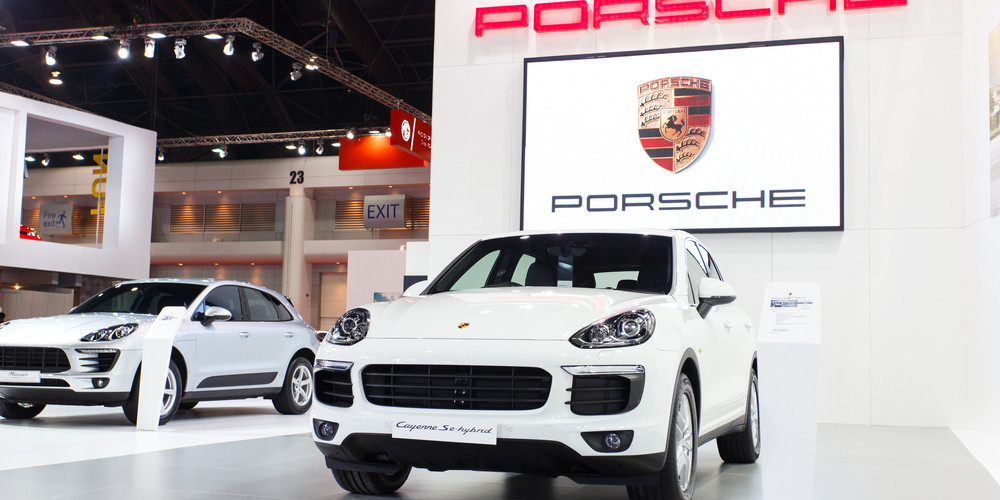You want to charge a high price? Justify it

Walmart, with a strategy predicated on low prices, is the company with the highest revenue in the world. But Apple, with a strategy predicated on high prices, is the world’s most valuable company.
Volkswagen fights for volume leadership in vehicles with Toyota globally. But recently, an interesting thing happened: Porsche, a part of the VW group, began contributing more to group profits than its VW parent. This is remarkable: VW sells 25 times as many cars (4.6 million in 2014) as Porsche does (just 187,000). Nonetheless, Porsche makes more total profit on that small base of roadsters than VW does with its mammoth sales.
How is this possible? In a word, margins. Apple has profit margins that the rest of the computing and smartphone industry can only dream about; and Porsche was reported last year to have the world’s highest profit per vehicle. It earns margins many times higher than the regular car brands do.
It’s an enviable position to be in, the high end of a market. You don’t have to spend every day worrying about your cost base; a price cut by rivals often has little effect on your sales; and you can spend way less on advertising than most of your competitors. Many Kenyan entrepreneurs aspire to be in this luxury end of their markets.
But wait: what is it that makes margins so high for the best luxury brands? What is it about a product that creates price-insensitivity, when most businesses lose customers in droves when they raise prices just a little? In another word, uniqueness. Products achieve high-end dominance when their offering cannot be replicated by others.
Achieving uniqueness, however, is not just about having a product with technical distinction. This is where many would-be high-end businessfolk get it wrong. Apple may make fine phones, but they are not always the ones with the fastest processors, sharpest screens or best cameras in the market.
Porsche may make outstanding vehicles, but there are cars in the market that offer more sophisticated interiors or more road-ripping performance. That isn’t the point. The point is that Apple, Porsche and a few other brands understand that being able to command consistently high margins is about the entire customer experience: about maintaining true excellence in every single way in which the customer interacts with the brand.
The whole is greater than the sum of the parts. So great products, of course: but also a great buying environment; outstandingly attentive salesfolk; high-level after-sales service; best-in-class websites and apps. In this way, lifelong relationships are created with the brand. Very profitably.
If you want to charge a high price, you have to justify it. Every day, and in every way. No matter how superior your product, you can’t have unswept floors or surly staff or uninterested attendants. You can’t be outstanding in one aspect of what the customer experiences, but woeful in something else. If you want the margins, you have to deliver the all-round experience at a very high level.
I remain astounded by how some very upmarket global brands entrust their distribution in Kenya to sub-standard dealers who have no grooming or appreciation of the heritage of what they sell. I remain equally flummoxed by those local producers and artisans and retailers who enthusiastically occupy the upper echelons of the price range, imagining that they deliver something worth paying handsomely for.
One of the best advertising slogans ever was the one I saw for Stella Artois beer: “Expensive, until you try it.” Beautifully put. I live by it. And it provides an acid test for you if you are contemplating being a high-priced success. Having a perception of being expensive is acceptable. In the upper heights of the market, it’s even desirable. But if you are still perceived as expensive once the product or service has been experienced, there is a mismatch between your aspiration and your actual offering.
The truth is, people only pay those high prices repeatedly if they get something more – status, satisfaction, utility, a problem removed – in return. If not, they feel suckered, and then they’re gone to something better.
Photo credit: Oris Arisara / Shutterstock.com

Buy Sunny Bindra's new book
The X in CX
here »
Popular Posts
- How things fall apartFebruary 8, 2026
- Why the third generation might ruin everythingFebruary 15, 2026
- Pretty isn’t the productFebruary 1, 2026
- You don’t need people skillsFebruary 22, 2026
- Snakes and Ladders, AKA your lifeJanuary 25, 2026















